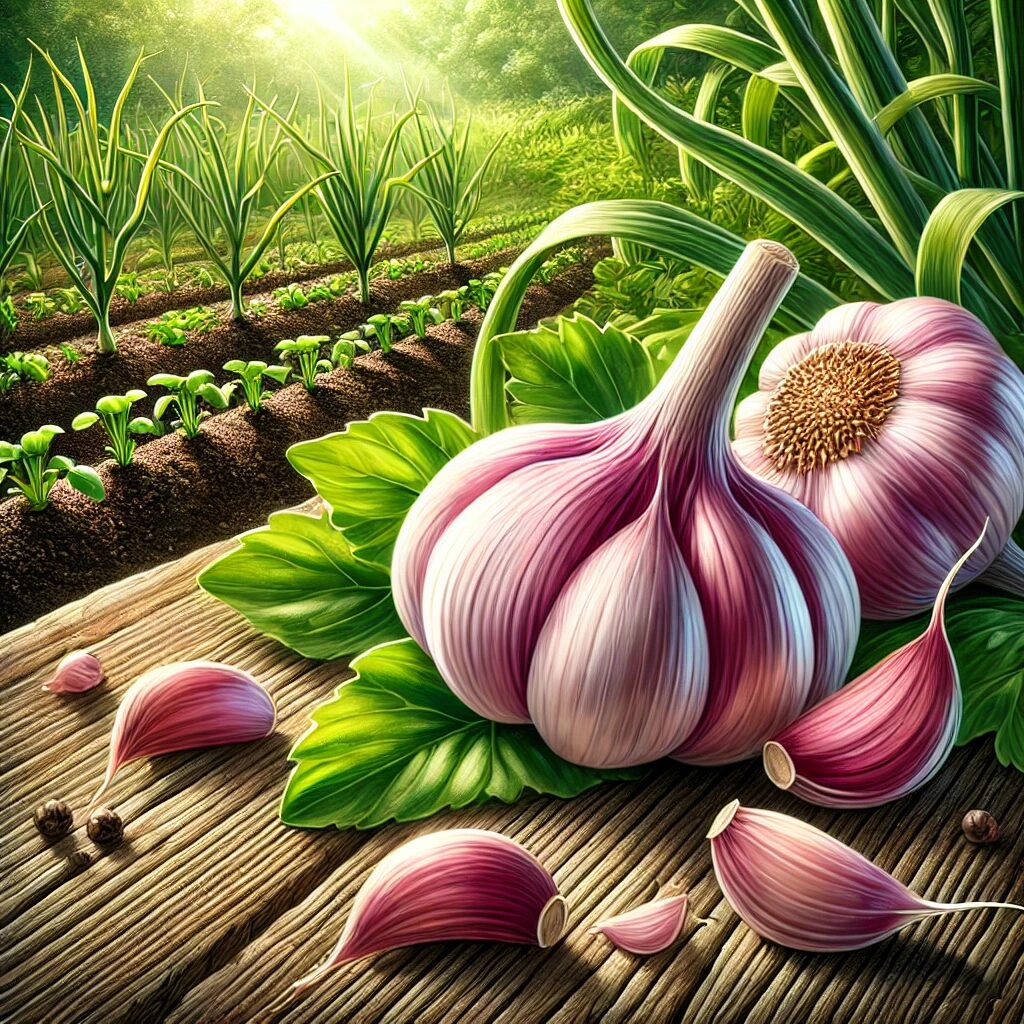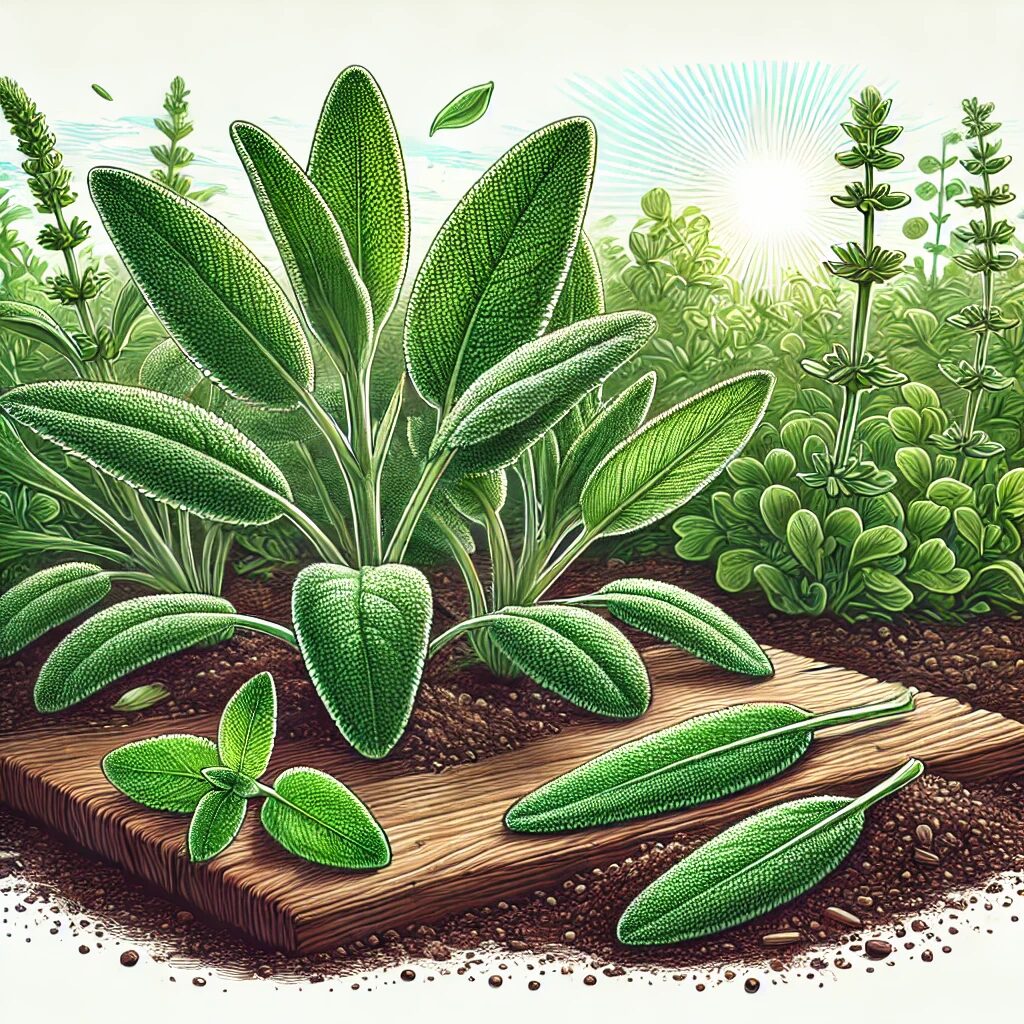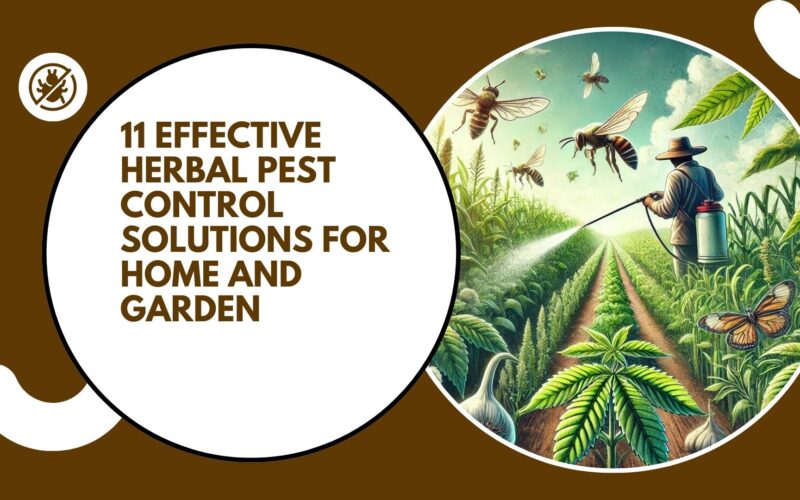Tired of pests invading your home and garden? Herbal pest control solutions offer a natural, chemical-free way to keep insects and rodents at bay!
Using herbal pest control solutions offers a natural, eco-friendly way to manage pests without the need for harsh chemicals.
These solutions utilize the scents and properties of specific herbs to repel unwanted insects and rodents, keeping your home and garden safe and chemical-free.
Here’s a guide to 11 powerful herbs and natural remedies for effective pest control.

1. Neem Leaves

Neem leaves contain compounds that act as a natural insect repellent and disrupt pest growth cycles, making them effective against a variety of insects.
Best For: Aphids, whiteflies, and caterpillars.
Application: Crush fresh neem leaves and scatter them around plants or place them in cupboards to keep pests away. Neem leaves are one of the most reliable herbal pest control solutions for garden pests, as they work on both larval and adult stages.
2. Garlic

Garlic’s pungent odor deters many insects from feeding or laying eggs on plants, making it an ideal natural pest deterrent.
Best For: Aphids, caterpillars, and slugs.
Application: Chop fresh garlic cloves and place them around plants or scatter them near doors and windows to keep pests at bay. Among herbal pest control solutions, garlic is highly effective for repelling garden pests while being safe for humans and pets.
3. Basil
Basil emits a strong aroma that repels flies, mosquitoes, and beetles, making it a versatile herb for both indoor and outdoor use.
Best For: Flies, mosquitoes, and beetles.
Application: Plant basil near windows, doors, or in pots around seating areas to keep pests away. Basil is one of the most accessible herbal pest control solutions and can also add flavor to your meals.
4. Thyme
Thyme releases a natural aroma that insects find unpleasant, preventing them from feeding on plants or laying eggs.
Best For: Mosquitoes, cabbage worms, and beetles.
Application: Plant thyme around the garden or place fresh thyme sprigs indoors, especially in areas where pests are common. Thyme is an effective addition to herbal pest control solutions, creating a natural shield for plants and seating areas.
5. Mint

Mint’s strong scent naturally repels various insects and rodents, making it a useful herb for kitchen and garden pest prevention.
Best For: Ants, fleas, and mice.
Application: Plant mint in containers around the house or garden, or scatter dried mint leaves near entry points. Mint is an ideal choice in herbal pest control solutions for kitchens, as it repels pests without harmful residues.
6. Rosemary
Rosemary emits a fragrance that repels mosquitoes, flies, and moths, making it suitable for both indoor and outdoor pest control.
Best For: Mosquitoes, flies, and moths.
Application: Place fresh rosemary sprigs around outdoor seating areas or use dried rosemary in closets and drawers to keep moths away. Rosemary is a favorite among herbal pest control solutions for its dual-purpose use in cooking and pest management.
7. Lavender
Lavender’s pleasant scent for humans is highly disliked by pests such as moths, fleas, and mosquitoes.
Best For: Moths, fleas, and mosquitoes.
Application: Place dried lavender sachets in closets or drawers to protect clothes from moths, or plant lavender around outdoor spaces to deter mosquitoes. Lavender is a classic option in herbal pest control solutions, known for its calming fragrance and effective pest deterrence.
8. Sage

Sage releases a strong herbal scent that deters flies, mosquitoes, and rodents, making it a versatile indoor and outdoor herb.
Best For: Flies, mosquitoes, and rodents.
Application: Burn dried sage leaves in outdoor spaces or place fresh sprigs near entry points. Sage’s potent scent makes it one of the most effective herbal pest control solutions for areas where pests are common.
9. Bay Leaves
The mild aroma of bay leaves repels various pantry pests, making them ideal for food storage areas.
Best For: Weevils, cockroaches, and moths.
Application: Place fresh or dried bay leaves in pantry shelves, food storage bins, and cupboards to deter pests naturally. Bay leaves are among the best herbal pest control solutions for keeping kitchen and pantry areas pest-free.
10. Catnip

While it attracts cats, catnip is an effective repellent for mosquitoes, ants, and certain beetles due to its active ingredient, nepetalactone.
Best For: Mosquitoes, ants, and beetles.
Application: Plant catnip around outdoor seating areas to keep mosquitoes away, or dry the leaves to place in bags near problem areas. Catnip is an unexpected but powerful option among herbal pest control solutions for repelling insects naturally.
11. Citrus Peels and Essential Oils

Citrus peels, especially from oranges and lemons, release oils that repel many types of pests, including ants and fleas. The scent disrupts pests’ ability to navigate and communicate, discouraging them from entering the area.
Best For: Ants, fleas, and flies.
Application: Place fresh citrus peels in areas where pests are found, or rub the peels around window sills and door frames. Citrus is especially effective in herbal pest control solutions for kitchen and pantry areas, providing natural, food-safe protection.
Conclusion
Herbal pest control solutions offer an effective, eco-friendly way to protect your home and garden without resorting to harsh chemicals.
From the natural repellents of neem leaves and garlic to the soothing yet potent scents of lavender and rosemary, each herb brings unique pest-deterring properties that keep insects and rodents at bay while preserving a safe environment for people, pets, and beneficial wildlife.
Embracing these natural methods not only promotes a healthier living space but also supports sustainable pest management, giving you peace of mind and a chemical-free approach to pest control.
